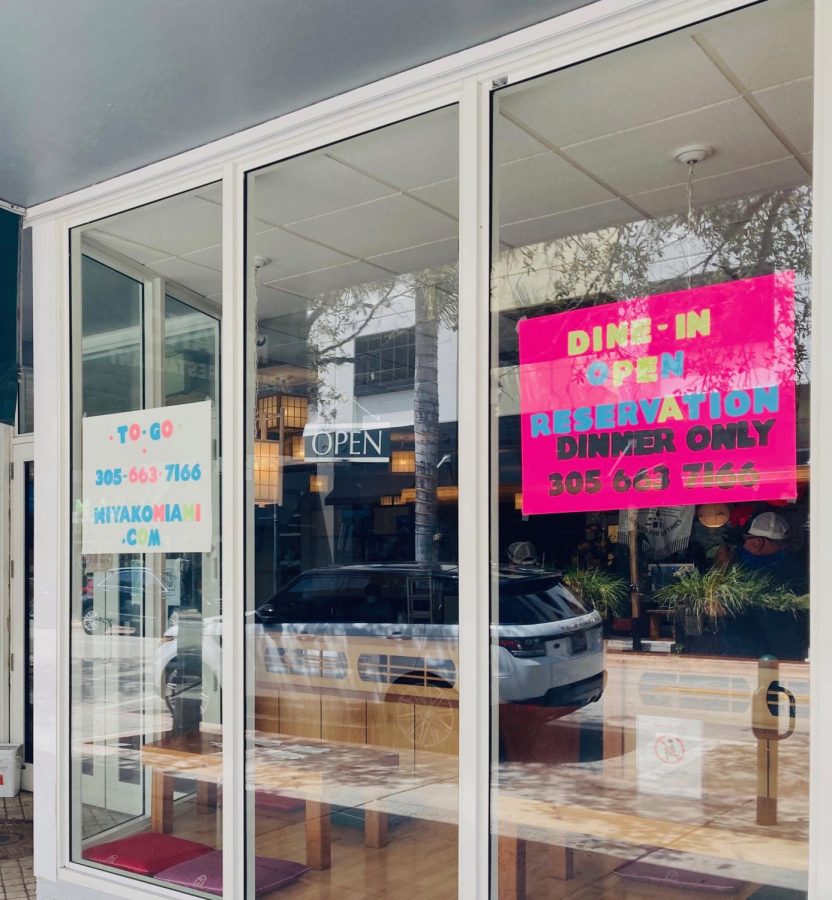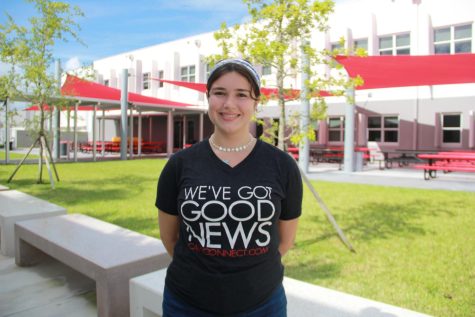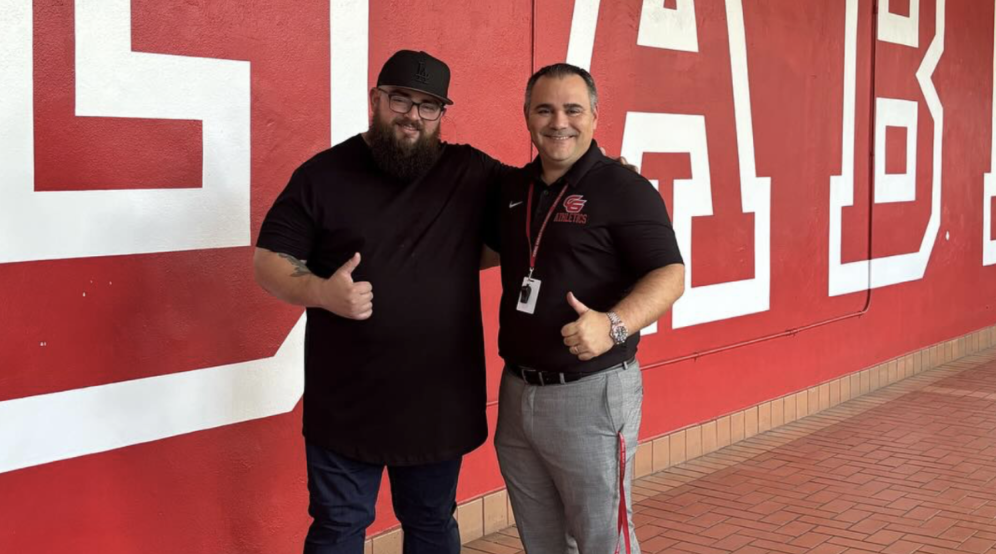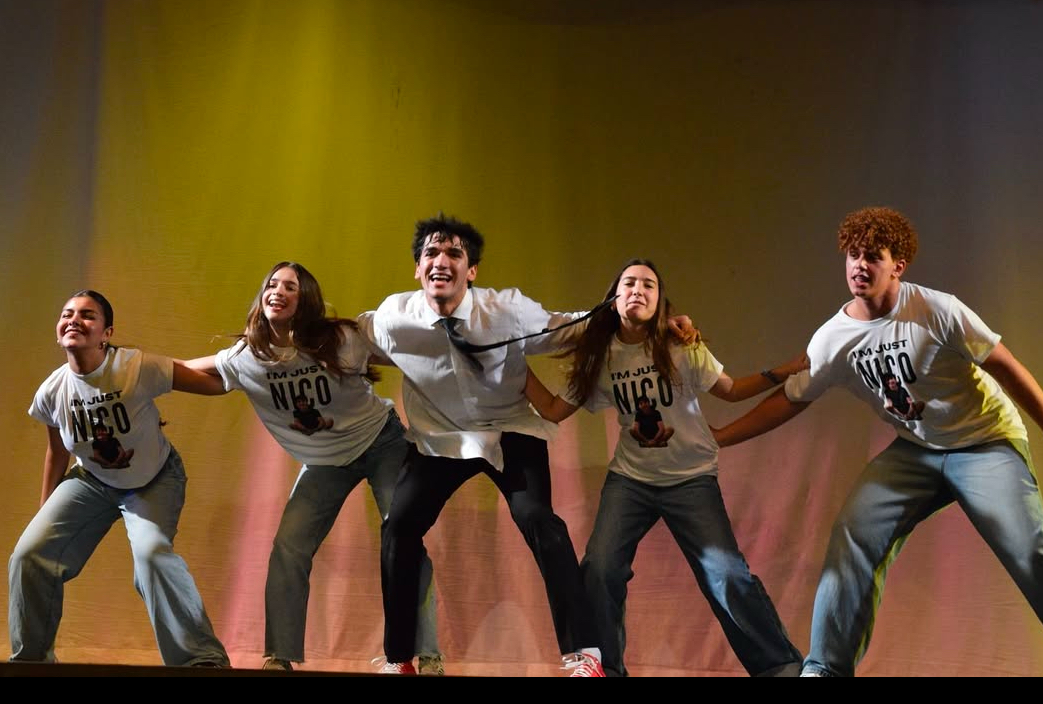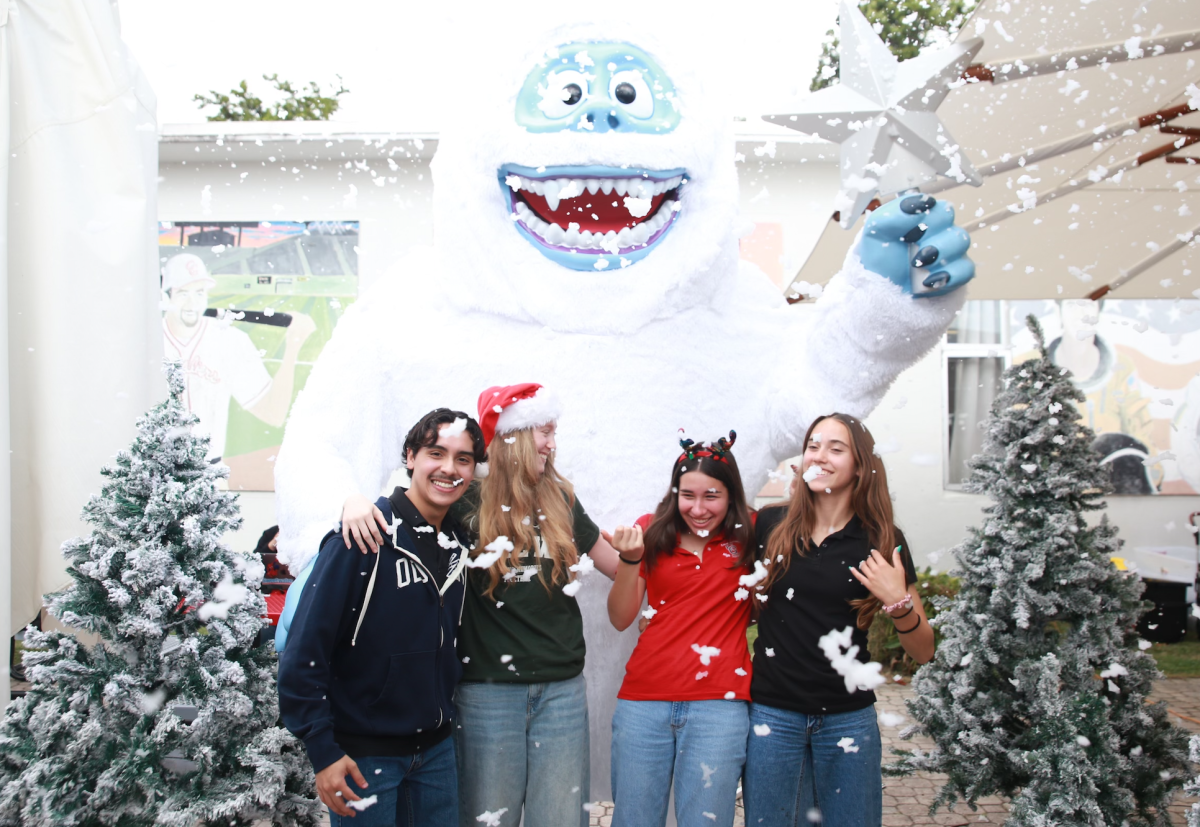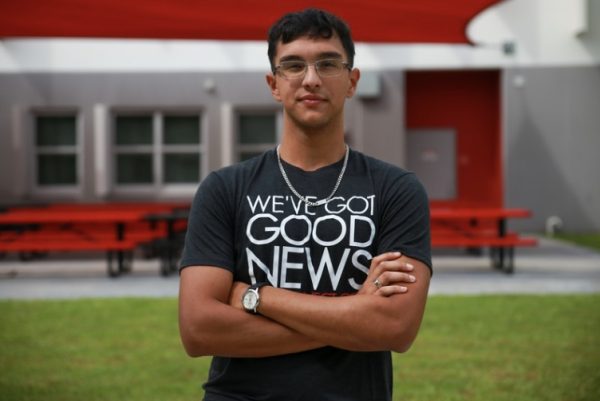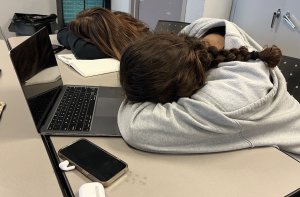Miami’s Phase Two Reopening: Is it Worth It?
Indoor Dining is starting to come back as we approach Labor Day. This may lead to detrimental consequences such as a spike in cases.
Sep 7, 2020
The past few months have been a stressful time for Floridians as we saw a spike in Coronavirus cases statewide which caused cities like Miami to become one of the global epicenters. Only recently have we been able to finally bring down the curve. Nevertheless, that does not mean precautions put in place should be removed or taken lightly. Now that Miami-Dade County’s cases are going down, the city has decided to reopen indoor dining, keep the beaches open on Labor Day and the University of Miami has even decided to start games again with fans eventually present at the stadium. Miami’s response to the virus has been extremely rushed– although it is great that the cases are finally going down, that does not mean the county needs to reopen everything immediately. COVID cases began to decrease because people were starting to self-implement the stay-at-home orders and take safety precautions seriously. Considering the observations that have been made about how other states such as Texas who opened prematurely have just seen a spike in cases, it is irresponsible to reopen certain facilities that come with the Phase 2 plan due to the dangers and risks that it brings to the public health.
As we navigate through these difficult times, COVID-19 has heavily impacted our economy and public health. When it comes to reopening indoor dining, the risk factor for catching the virus becomes a lot higher. Most health officials do not recommend the use of indoor dining because of high contamination rates. The consequences can include another spike in cases that will potentially cause the complete shutdown of restaurants. The best action plan is to enforce only outdoor seating to support the restaurants and keep everyone a lot safer.
Labor Day, a popular holiday for avid beach-goers, is ongoing so Miami-Dade is evaluating the precautionary measures that should be put in place for the weekend. However, they have failed to do something as simple as close down the beaches. The people of Miami love holidays where they can spend their days relaxing at the beach or eating out at a nice restaurant. Now, due to COVID-19, it will pose an imminent risk of contamination. Even though the mayor said that they will be enforcing social distancing, it is simply impossible to monitor everyone.
“Restaurants are doing everything they can to keep tables clean and sanitized. So, as long as restaurants are making sure everyone is socially distancing, ensuring guests are taking correct precautions and making sure that tables are distanced from each other then I’m potentially on board with the idea of indoor dining,” junior Kennedy Martin-Jones said.
From school to the sports industry, we are all learning to adapt to the new normal. Many major sports leagues are not allowing in-person fans yet, so they have to get creative. They are considering using Virtual Reality to give an in-person experience where they can sell tickets and there are now subscriptions to watch these sports games. There are so many innovative strategies and ideas that can be used instead of putting fans’ lives at risk. Yet, UM has decided to not take that approach and start their games again and they said that after the first two home games, they might be allowing fans in the stadium. Starting the UM games is actually great for the athletes and students to regain some sense of normalcy, and brings more school spirit in a time where there might not be as much. However, it came as a surprise when they declared that there might be fans allowed inside the Hard Rock stadium in the future when there are so many safer alternatives such as providing students with VR. If they do allow students inside, it has to be very few so they can have more of a controlled environment and a lower contamination rate.
“At this point, allowing fans at football games under a non-bubble system is extremely irresponsible and can have detrimental consequences to the local community. Especially as a current student, it is scary enough to know that many students have already tested positive for Coronavirus. Allowing 13,000 people a week, many of which will not be university students, to flood into a stadium in socially distanced clusters is a recipe for disaster. All it takes is one person to be an asymptomatic carrier and the entire campus and local community can be affected,” University of Miami freshman Daniel Toll said.
There is a large feeling of anxiousness for many if Miami were to reopen these facilities and events. Ultimately, if this is done, it will further delay the reopening of schools due to a potential rise in cases. We as communities and citizens have to do better in making sure we can ride out this virus with the least damage now possible. If our city chooses not to be responsible, then we have to take on the task of making the right choices such as choosing outdoor dining for your safety as well as others. All residents should make sure to try your best to implement social distancing measures and face masks wherever you go for the sake of our health, economy and livelihood.


